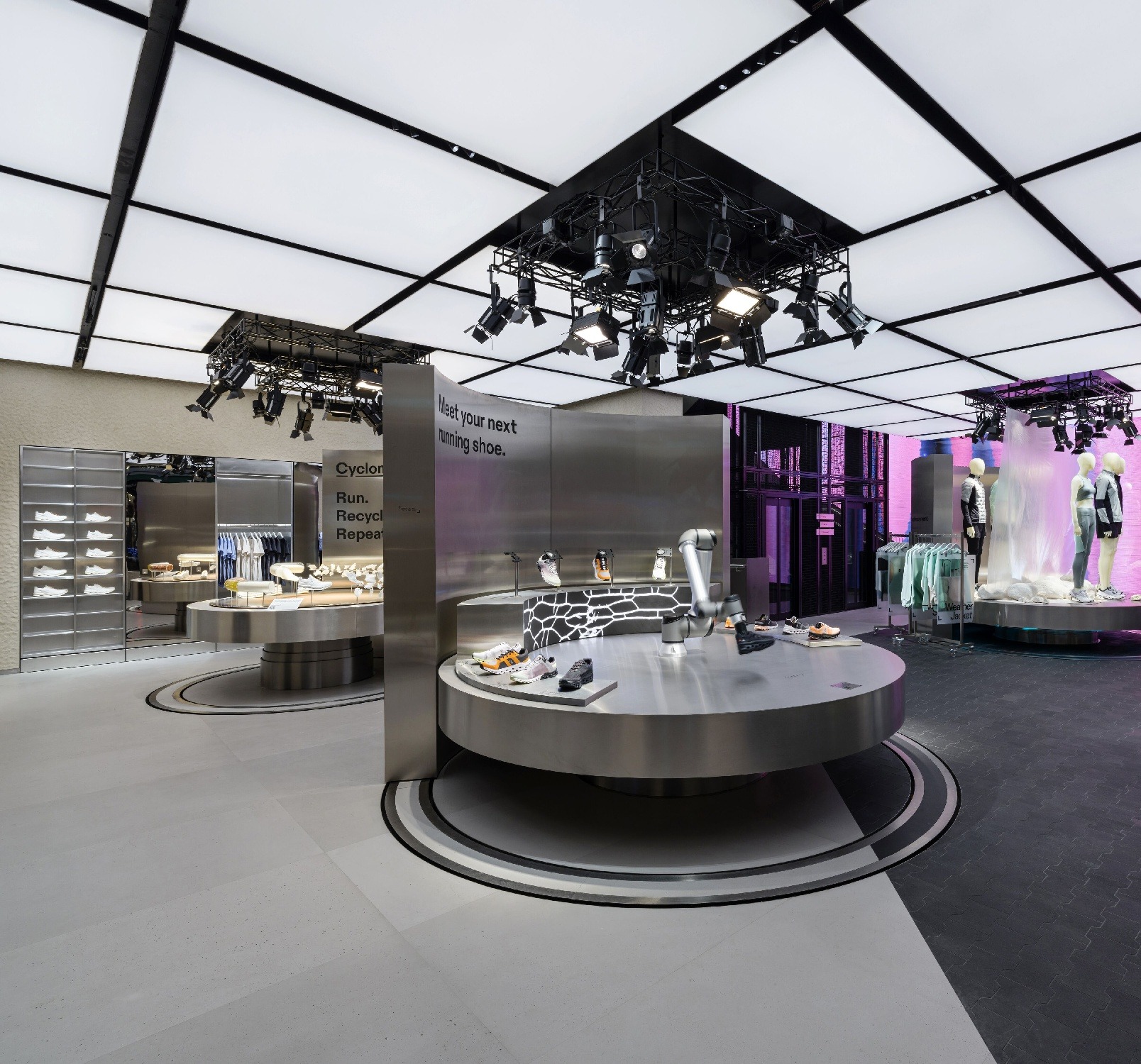10 : 03 : 23 : Weekly Debrief
This week: Assouline's metaverse travel guide, Lego advances representation, 3D-printed menopause treatment, shoppable science museums and more women in boardrooms.
1. Assouline publishes travel guide to the metaverse
US – Luxury publisher Assouline, known for its hand-bound guides to art and culture, has published Metaverse Dream, a travel guide to the metaverse. With previous travel titles taking readers on high-end journeys through Tulum, Monte Carlo and Marrakech, this is the publishing house’s first guide to a virtual place.
Written by gaming expert Paul Dawalibi and venture capitalist Gregory Landegger, Metaverse Dream encourages readers to think of digital worlds as spaces of endless exploration. Scanning the QR code on the book’s cover takes readers to Assouline’s exclusive pop-up boutique in the metaverse, where they will discover additional educational content and artwork.
As the metaverse still feels nebulous to many consumers, Assouline’s future-facing title is an awe-inducing way for readers to immerse themselves in its potential.
2. Lego introduces characters with disabilities and complex emotions
Denmark – After interviewing 18,000 children aged 6–12 worldwide, the Lego Group identified a gap in its offer regarding the representation of children’s friendships. That’s why the company has introduced a new set of characters as part of its Lego Friends universe with a wider variety of skin tones, cultural backgrounds, disabilities and neurodiversity.
Available in the toys section and an accompanying series hosted on its YouTube channel, these new characters aim to represent the importance of friendship, wellbeing and emotional diversity. According to the study, two in three kids (68%) want to see more toys and characters portray different emotions to reflect real life better.
Child psychologist Laverne Antrobus commented on the research saying: ‘It’s encouraging that children want to see diverse friendships represented in the content they watch and the toys they play with.’ In The Zalpha Reckoning, we previously highlighted how a hybrid generation of Zalphas wise beyond their years are entering brands’ consciousness and pushing for more social justice.
 Lego, Denmark
Lego, Denmark
3. Menopausal treatment service Luma uses data, AI and 3D-printed pills
UK – Inspired by fertility-tracking apps, multi-disciplinary design agency Morrama and its research arm Morrama Labs just launched Luma, a smartwatch app that collects data from someone going through the menopause. The company will use the information to tailor the balance of ingredients in its ‘magic compound’ before 3D-printing it into a monthly batch of pills and shipping the treatment out in sustainable packaging.
Luma tracks physical changes in temperature, heart rate, stress and sleep levels to help assess whether ‘the user has had a particularly tough day’, said founder and creative director of Morrama, Jo Barnard, in a statement. She added: ‘This data capture helps build a much broader picture of a woman’s journey and will help brands identify patterns that can help unlock new ways of managing menopause.’
In Tech-powered Perimenopause, we previously highlighted how the femtech industry is expanding to cater for later life stages, including AI-driven solutions like Luma that will empower individuals with better choice and transparency as they approach the perimenopause.
 On, UK
On, UK
4. On opens shoppable science museum
UK – On has introduced a retail-meets-museum concept at its first London outpost. The sports brand is using its store to educate shoppers about the science behind its technical running shoes and apparel.
Swiss performance sports brand On took inspiration from a science museum for its Regent Street flagship store. The space has been designed to encourage customers to touch, interact with and explore the technological innovations and sustainability projects on display.
Across the store’s several floors, shoppers can delve into the brand’s universe as the decor and materials transport them to the Alps. The tech-enhanced displays showcase the inner workings of On’s technical shoes and clothes. ‘Our concept is a shoppable science museum. We want to share that what we do is science-based,’ explains On’s head of brand environments Nicholas Martin. Other store highlights include the Magic Wall, which contains all of On’s shoes in all available sizes, allowing customers to reduce waiting time and find what they need at a glance. Shoppers can also enjoy a versatile community-centred space for panels, workouts and events.
5. Stat: UK’s big companies reach milestone in boardroom gender balance
UK – A pulse check on the proportion of women in boardroom roles in Britain’s largest listed companies reveals significant progress. As of 2023, only 10 of the FTSE 350 companies still have all-male executive teams, the lowest recorded number.
Ahead of International Women’s Day, the government-backed review assessed gender equality on the boards of FTSE 350 companies, revealing that the voluntary target of 40% women on boards by 2025 was met three years ahead of schedule. The review credits businesses with a push for diversity and a collective effort which effectively led to change despite no top-down quotas or legislation.
While these results are promising, the report notes that women account for 51% of the British population, leaving businesses room for improvement to reflect that proportion in their leadership. As it stands, only three FTSE 350 companies have more than 50% women boards – Burberry Group, with 54%, followed by clothing retailer Next (53%) and Sainsbury’s (51%).
The increasing number of women on boards despite the lack of top-down interventions or regulations is a hopeful development for workplace futures, given that leaders are committed to consistently showing up for underprivileged groups.
To future-proof your world, visit The Future Laboratory's forecasting platform LS:N Global for daily news, opinions, trends, sector specific insights, and strategic toolkits.
Want to read more?
Become a member today!
Sign up to one of our trends intelligence platform, LS:N Global and get unlimited access to a hive of insights - from microtrends and macro trends to market reports, daily news, research across eight industry sectors and much more.
Discover our memberships
Already a member? Click here to login
